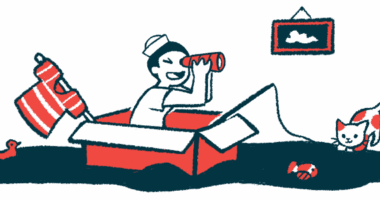I owe my life to an incredible support team growing up

First in a series.
“What was your support system like growing up?”
I was on the phone with a researcher from Augustana University in South Dakota. We were discussing my transition from pediatric to adult care as someone with a disability (in my case, SMA). I’d just finished writing a column about my pediatrician, so the topic was front of mind.
I told her about my veritable gaggle of healthcare professionals, including neurologists, orthopedic surgeons, and dermatologists. But I also told her about the members of my care team who didn’t get nearly enough recognition: the paraprofessionals and the social workers. My support system was a tightly woven web of people who were determined to give me the best life possible — and I owed my life to them.
As I wrote in my last column, I didn’t realize just how exceptional my care team was when I was growing up. In fact, I took a lot of it for granted. My doctors kept me alive. My paraprofessionals assisted me throughout the school day while my parents took over at night. It was a well-oiled machine of social services and bureaucracy, and while I knew I was fortunate, I didn’t know. Not really.
Help with my schooling, and more
Take, for example, my primary education. I was so susceptible to respiratory infections that, every fall, I’d take a break from the public school system, essentially becoming a home-school student for the winter. To ensure I kept up with my studies, teachers came to my house, armed with textbooks and worksheets and, in the case of 10th grade biology, mineral samples.
Most of my teachers were just that: teachers. But I ended up developing a long-lasting relationship with my very first home-school teacher, Kathy, who worked as a special ed teacher at a nearby middle school. She taught me for years and, like my pediatrician, only stepped down when she no longer felt comfortable with the material. But that wasn’t the end. We loved Kathy so much that she became my caregiver, and she often babysat me when my parents went on an exceedingly rare date night.
Then there was my high school paraprofessional, Julie. We hit it off immediately, to the point where I begged my case manager to keep us together. We were inseparable for the next three and a half years. My high school graduation was a tearjerker, mostly because I didn’t want to let Julie out of my sight.
My life is a tapestry of all the people who have supported me over the years. The nurses who held my hand while a lab technician drew yet another vial of blood. The assistive technology professionals who helped my parents research and purchase my first wheelchair. The surgeons who operated on me. The case managers who advocated for me and, more importantly, taught me to advocate for myself.
On family and privilege
And that’s just the professionals on my care team. There’s my mom, who managed everything from handling my insurance to finding a dollhouse I could feasibly play with; my aunt, who drove five hours one way for a girls’ weekend every couple of months; my dad, who never complained about playing Pretty Pretty Princess with me (and if he did, I’ve probably blocked it out).
Of course, not everyone has access to such a robust care team. I lived close to a major metropolitan city with several outstanding hospitals that specialized in rare disease. My mom made enough money to allow my dad to stay home and take care of me. The county where I went to school made exceptional provisions for students with disabilities. My privileges are immense and have undoubtedly shaped the trajectory of my life.
But that’s the thing. I don’t want it to come down to privilege. I don’t want the lives of future generations to hinge on where they live or their yearly household income. I don’t want my story to stand out as rare; if anything, I want my story to become commonplace. I want everyone living with SMA to benefit from an incredible support system — not just as children, but as adults, too.
Next week: More on how adults like me need support systems.
Thanks for reading! You can follow me on Instagram and Threads, subscribe to my newsletter, or support me on Substack.
Note: SMA News Today is strictly a news and information website about the disease. It does not provide medical advice, diagnosis, or treatment. This content is not intended to be a substitute for professional medical advice, diagnosis, or treatment. Always seek the advice of your physician or other qualified health provider with any questions you may have regarding a medical condition. Never disregard professional medical advice or delay in seeking it because of something you have read on this website. The opinions expressed in this column are not those of SMA News Today or its parent company, BioNews, and are intended to spark discussion about issues pertaining to spinal muscular atrophy.
The post I owe my life to an incredible support team growing up appeared first on SMA News Today.




